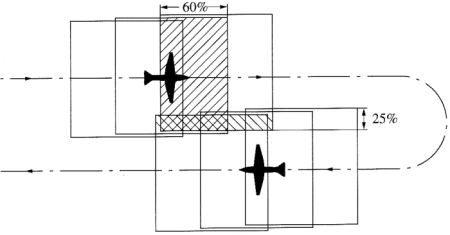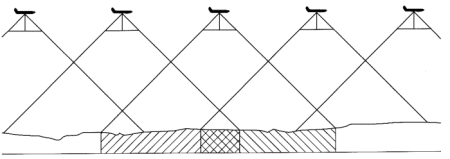Stereopairs
Two images of the same area, taken from different points of view are called a stereopair.
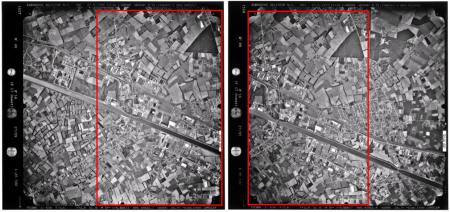
Source: Ghent University
In a stereopair, there is always an overlap (see red squares), where stereovision is possible, because of the present parallax. Outside these regions, you are not able to see in 3D.
Viewing systems
To get these two images merged together in a 3D image, the observer has to see the pair of images through a viewing system called a stereoscope. The stereoscope is a tool which guarantees that each eye sees only one of the stereopairs. Each eye thus sees a different image of the same scene, each image taken from a slightly different point of view. When the brain merges the two images together, the observer experiences a 3D vision of the scene. This can be realized manually or digitally.
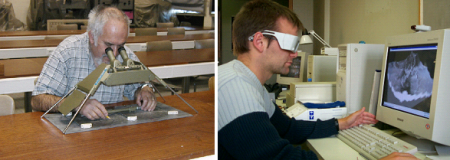
Source: Ghent University
How do you obtain stereopairs?
Aerial photographyWhen scientists want to map out a specific area, they first create a flight map. Flight lines are laid out on
this flight map with a spacing that allows the photographs to cover a common strip of ground. This overlap between
flight strips amounts to about 25% of the width of the area covered by the photograph.
Each photograph in the flight line covers an area which overlaps the area covered by the previous photograph
by about 60%.
Satellites
Satellites can make stereoscopic images in two ways:
- A satellite takes one image sideways when it is located at orbit (i) around the Earth. When it
is one orbit further (i+1) it makes another image of the same area.
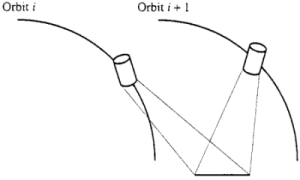
- A satellite takes an image forward. A few seconds later, it makes an image of the same area, backward.
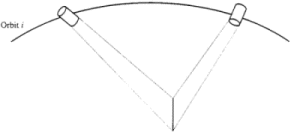
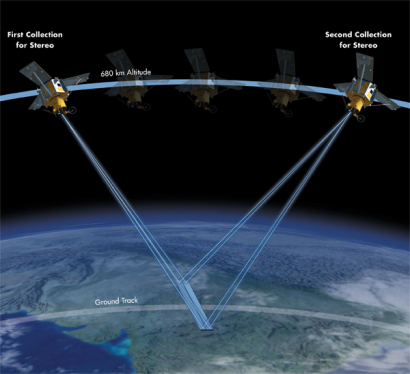
Source: Satellite Imaging Corporation. All rights reserved.
This animation shows how a stereopair is obtained by the SPOT satellites.
Satellites that can take stereo images are available with different geometric resolutions:
| Resolution | Satellite |
|---|---|
| Medium resolution: 500-250 m | MISR |
| High resolution: 10-30 m | SPOT, ASTER |
| Very High Resolution: 0,5-3 m | IKONOS, Quickbird, Corona |
